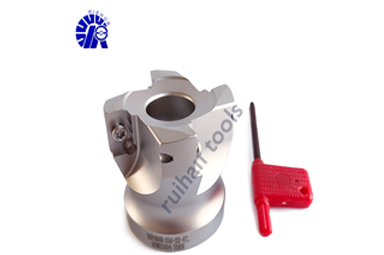How Do Indexable Tools Keep Their Edge?
Indexable tools maintain their cutting edge through a combination of factors that are carefully designed into their construction and usage. Indexable tools, such as indexable inserts and indexable end mills, are cutting tools used in machining operations, known for their replaceable cutting edges. These tools are cost-effective and efficient because they allow for easy replacement of the worn or damaged cutting edge, rather than having to replace the entire tool. Here are the key ways indexable tools keep their edge:
1. Multiple Cutting Edges:
Indexable tools are designed with multiple cutting edges on a single insert or cutter body. These cutting edges are strategically placed to maximize tool life and maintain consistent performance. When one cutting edge becomes dull or damaged, the insert or cutter can be indexed (rotated or replaced) to bring a new, fresh cutting edge into action.
2. Hard and Wear-Resistant Materials:
The cutting edges of indexable tools are typically made from hard and wear-resistant materials such as carbide, cermet, or cubic boron nitride (CBN). These materials can withstand high cutting temperatures and provide excellent wear resistance, ensuring the cutting edge retains its sharpness for longer periods.
3. Coatings:
Many indexable inserts and cutters are coated with special coatings to enhance their performance and extend tool life further. Coatings like titanium nitride (TiN), titanium carbonitride (TiCN), and aluminum oxide (Al2O3) improve tool hardness, reduce friction, and protect against built-up edge and adhesion.
4. Chip Breakers and Geometry:
Indexable inserts often feature chip breakers and specific geometries that help control chip formation and chip evacuation. Proper chip control prevents chip recutting, which can cause rapid tool wear, and improves chip flow away from the cutting zone, reducing heat and improving tool life.
5. Cooling and Lubrication:
Adequate cooling and lubrication play a vital role in maintaining the cutting edge's integrity. In machining operations, the cutting tool is often supplied with cutting fluids or coolants to dissipate heat, reduce friction, and flush away chips, ensuring the cutting edge remains cool and free from excessive wear.
6. Correct Cutting Parameters:
Using the correct cutting parameters, such as cutting speed, feed rate, and depth of cut, is crucial in preserving the cutting edge's sharpness and preventing premature wear. Following manufacturer recommendations and optimizing the machining parameters for the specific material being machined can significantly impact the tool's edge retention.
7. Proper Handling and Storage:
Careful handling and storage of indexable tools are essential to protect their cutting edges. Avoiding drops or impacts that could chip or damage the cutting edge and storing the tools in a clean, dry, and protected environment will help preserve their performance and longevity.
8. Regular Maintenance:
Performing regular maintenance on indexable tools is vital to keep their edges in optimal condition. This includes inspecting the inserts for wear, damage, or chipping, and replacing them when necessary. Additionally, ensuring proper tightening of the inserts and cutter bodies to avoid vibration or chatter that can accelerate wear.
9. Suitable Applications:
Using indexable tools for suitable applications is critical to maintaining their edge. Different indexable inserts and cutters are designed for specific materials and machining operations. Using the right tool for the right application ensures optimal performance and tool life.
In conclusion, indexable tools retain their edge and offer cost-effective machining solutions through a combination of multiple cutting edges, hard and wear-resistant materials, coatings, chip control, cooling, correct cutting parameters, proper handling and storage, regular maintenance, and suitable application. By considering these factors, manufacturers can maximize the performance and longevity of their indexable cutting tools, ultimately improving productivity and reducing machining costs.
184
0
0




Comments
All Comments (0)